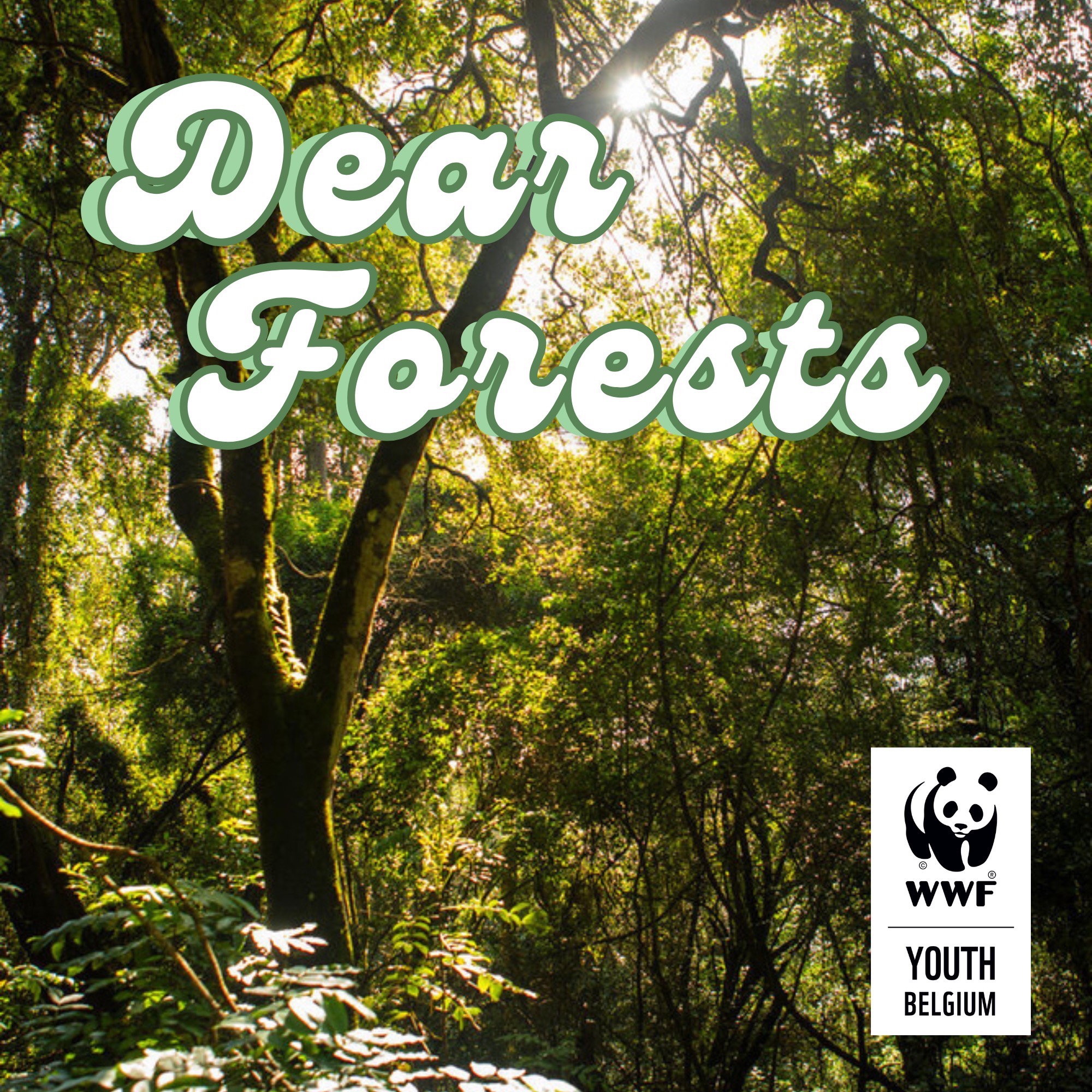Dear Forests

Dear Forests
Podcast Description
The podcast ’Dear Forests’ is a WWF Belgium Youth Team project that will explore various topics surrounding deforestation with the primary goal of educating the youth and the wider public about the topic. Together with contributors with a wide range of expertise, the host will delve into the primary causes of deforestation; its impacts on people and the climate; and ways in which our global community fights against it. Sponsored By: WWF (World Wildlife Fund for Nature) Belgium in collaboration with DGD (Direction générale Coopération au développement et Aide humanitaire).Forest in Cover Art: Greg Armfield — All Rights Reserved (Interior shot taken in Loita Forest looking up at canopy. Loita, Narok County, Kenya).
Podcast Insights
Content Themes
The podcast addresses various themes related to deforestation, including its causes, impacts on climate, and global community responses. Episode examples include a discussion on how the food industry, particularly coffee and cocoa, contributes to deforestation and a broader examination of climate impacts and the role of forests in sustainable development.

The podcast ’Dear Forests’ is a WWF Belgium Youth Team project that will explore various topics surrounding deforestation with the primary goal of educating the youth and the wider public about the topic. Together with contributors with a wide range of expertise, the host will delve into the primary causes of deforestation; its impacts on people and the climate; and ways in which our global community fights against it.
Sponsored By: WWF (World Wildlife Fund for Nature) Belgium in collaboration with DGD (Direction générale Coopération au développement et Aide humanitaire).
Forest in Cover Art: Greg Armfield — All Rights Reserved (Interior shot taken in Loita Forest looking up at canopy. Loita, Narok County, Kenya).
In this special episode of the Dear Forests podcast, the host has an insightful and thought provoking conversation with Carlos, a Brazilian climate justice advocate and sustainability professional. The significance of COP30 being held in Brazil (specifically in the Amazon Basin) is monumental, especially given the rate of deforestation in one of the world's largest remaining natural forests. Discussions in this episode will be centred around how indigenous and local populations will be affected by the event; who might show up and why; the ways in which current geopolitical shifts may affect the outcomes; and how the relationship between Global North and Global South countries can evolve to enable the creation of an equitable future for us all.
Carlos and I connected on the Omek platform which is a global community of bicultural of African descent and allies that is filled with phenomenal people who are doing insanely beautiful things. So feel free to check it out here — maybe you're our newest community member!
A few definitions to note:
Carbon market — A specialised type of financial market that facilitates the purchase and sale of carbon credits. Some carbon markets are run and regulated by governments or international bodies, with certain industries required to participate, while others are entirely voluntary.
Carbon credits — Permits that allow the purchaser to emit a certain amount of carbon dioxide or other greenhouse gases.
We also discussed CO2 tonne emission, financial contributions at COP, the Brandt line, the Rio agreement, and the countries that have fulfilled the Paris agreement ahead of time.
Carlos Eduardo Marques is a professional with 17 years of experience and 8 years as a leader in the environment, climate, ESG, sustainability, and sustainable finance. He was chosen by CEO Magazine as one of the top 20 global leaders in sustainability, by Exame magazine as Top Voice Sustainability, and by the US State Department to join the selection committee for the Young Leaders of the Americas Initiative Program 2024.
On a day-to-day basis, he is responsible for managing and developing Sicoob's National Sustainability Agenda. Sicoob is Brazil's largest credit cooperative, with 14 regionals and more than 300 local cooperatives totaling R$ 190.4 billion in assets, R$ 120 billion in credit operation, and almost 8 million members. On top of this, acting as president and founder of the Ambiafro for 5 years and counting, to change the relationship with the environment/sustainability, making its content more accessible and plural, putting black people and their experiences at the center of the discussion.
**Sponsored by the WWF Belgium in collaboration with DGD (Direction générale Coopération au développement et Aide humanitaire).

Disclaimer
This podcast’s information is provided for general reference and was obtained from publicly accessible sources. The Podcast Collaborative neither produces nor verifies the content, accuracy, or suitability of this podcast. Views and opinions belong solely to the podcast creators and guests.
For a complete disclaimer, please see our Full Disclaimer on the archive page. The Podcast Collaborative bears no responsibility for the podcast’s themes, language, or overall content. Listener discretion is advised. Read our Terms of Use and Privacy Policy for more details.